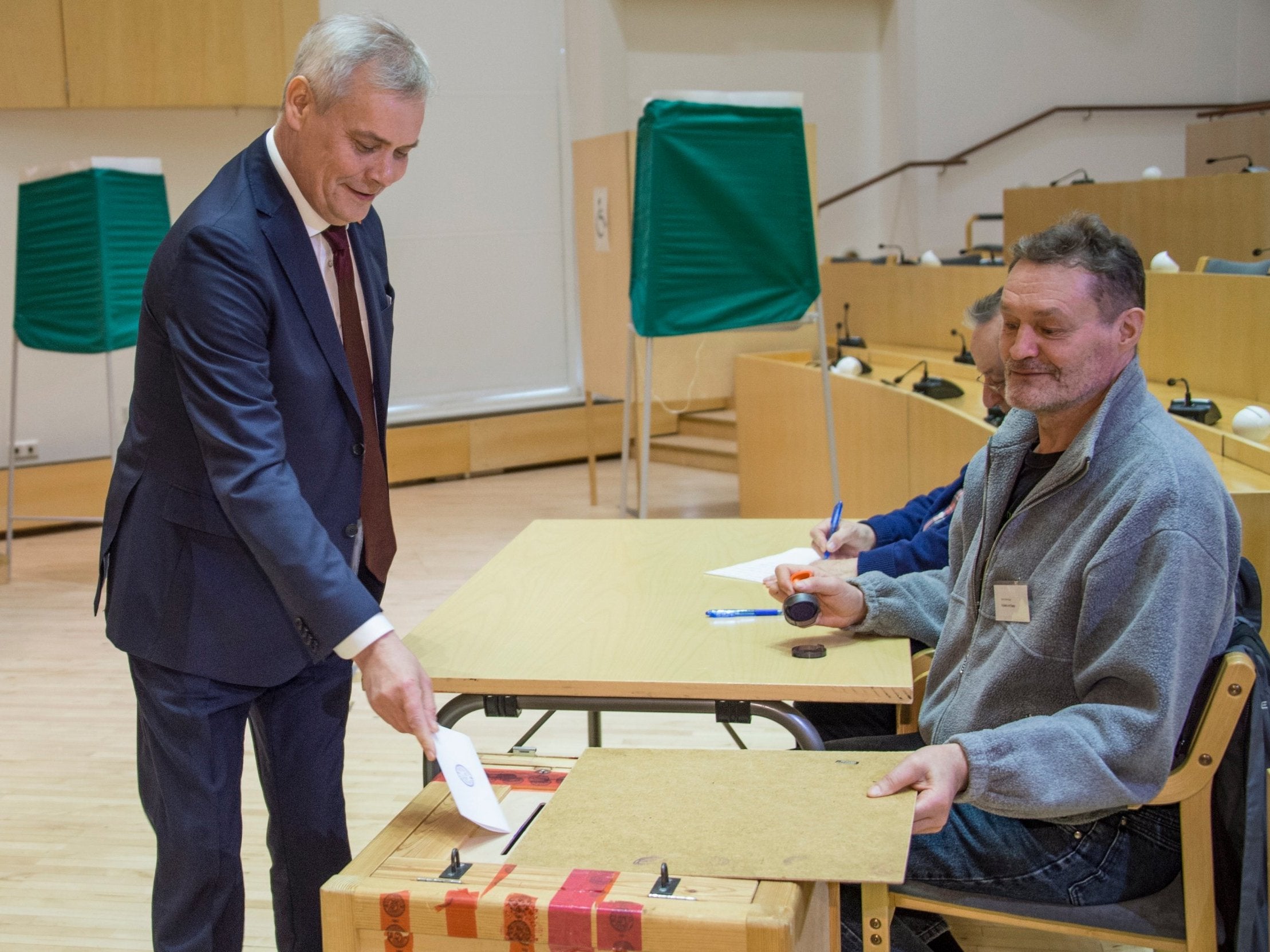Finland on verge of getting first left-wing prime minister in 20 years
Climate change, immigration and welfare reform are key issues in parliamentary vote

Your support helps us to tell the story
From reproductive rights to climate change to Big Tech, The Independent is on the ground when the story is developing. Whether it's investigating the financials of Elon Musk's pro-Trump PAC or producing our latest documentary, 'The A Word', which shines a light on the American women fighting for reproductive rights, we know how important it is to parse out the facts from the messaging.
At such a critical moment in US history, we need reporters on the ground. Your donation allows us to keep sending journalists to speak to both sides of the story.
The Independent is trusted by Americans across the entire political spectrum. And unlike many other quality news outlets, we choose not to lock Americans out of our reporting and analysis with paywalls. We believe quality journalism should be available to everyone, paid for by those who can afford it.
Your support makes all the difference.Finland could elect its first left-wing prime minister in 20 years as voters weigh up debates over climate change, the welfare system and immigration.
The Social Democrats led opinion polls ahead of Sunday’s parliamentary election with 19 per cent of the vote, giving chairman Antti Rinne the best chance of forming a government.
However the nationalist Finns Party, which has focused on immigration issues, are running a close second with 16.3 per cent following a surge in support over the last six months.
The incumbent centre-right government, formed by the Centre Party, Finns Party and National Coalition Party, collapsed last month following the resignation of prime minister Juha Sipila.
Mr Sipila, whose National Coalition are third in the polls with 15.9 per cent, said he stood down because of failure to reach agreement over health care reform as part of his bid to reduce debt by cutting benefits and government spending.
By contrast, Mr Rinne, a 56-year-old former union leader, has promised to raise taxes to fund welfare and tackle economic inequality.
“We need to strengthen our welfare society – and that needs money,” he said in an interview before polls opened. “We need to spread our tax base and we need to strengthen it. That’s a big policy change here in Finland if we do that.”
One of his election promises is to increase state pensions by €100 (£86) a month in a bid to help “more than 55,000 pensioners escape poverty”, he said
Mr Rinne said he had not ruled out forming a coalition government with the Finns party but added that his values “differ very much” from their Eurosceptic leader Jussi Halla-aho.
He told reporters: ”I have said that if we’re the first party, we are going to ask all parties the same questions.”
Environmental policy is also a major issue in Finland, with Greenpeace describing the parliamentary vote as a “climate election”.
“For everybody, it’s about the climate,” said voter Sofia Frantsi, 27, an interior architect from Helsinki. “Everybody’s feeling some kind of a depression about it.”
The Finns Party argue that the government is spending too much money on issues such as climate change and immigration.
Mr Halla-aho, 47, said: “We want to reduce to as low as possible the kind of immigration that is, in our opinion, damaging to the public finances of our country and to the safety and security of people.”
Nineteen parties in total are running in the election, ranging from the environmentalist Green party, polling at 12.2 percent, to the tiny Feminist Party founded two years ago.
The first estimate of the results are expected shortly after polling stations close at 8pm local time.
Additional reporting by Associated Press and Reuters
Subscribe to Independent Premium to bookmark this article
Want to bookmark your favourite articles and stories to read or reference later? Start your Independent Premium subscription today.
Join our commenting forum
Join thought-provoking conversations, follow other Independent readers and see their replies
Comments